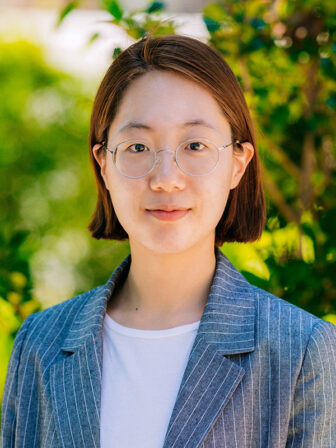Sohyeon Park, PhD student in informatics at the UC Irvine Donald Bren School of Information and Computer Sciences (ICS), received the 2025 Google PhD Fellowship on Oct. 23, 2025. Her research focuses on human-computer interaction, responsible AI, and accessibility.
The program provides vital direct financial support for each Fellow’s PhD pursuits and connects them with a dedicated Google Research Mentor.
In announcing the 2025 fellowship recipients, a Google representative said:
“These fellowships recognize outstanding graduate students who are conducting exceptional and innovative research in computer science and related fields, specifically focusing on candidates who seek to influence the future of technology. We are excited to welcome this global cohort and look forward to partnering with them as they continue to become leaders in their respective areas.”
Park shared her insights on receiving the Global Google PhD Fellowship:
What does receiving the Google PhD Fellowship mean for you?
Receiving the Google PhD Fellowship feels deeply validating. It makes me feel recognized for the kind of interdisciplinary research I do – work that bridges the social and technical dimensions of AI. I’ve often worried that my research might fall in between fields: too technical for social science audiences, yet too grounded in human and social concerns for purely technical communities. This fellowship affirms that there is real value and space for research like mine. I’m excited for the opportunity to learn from and contribute to a broader community of researchers who share similar values and curiosity, while continuing to push my research forward.
Could you describe your research interests?
My research lies at the intersection of Human-Computer Interaction (HCI), Accessibility, and Responsible AI. I’m particularly interested in how large language models (LLMs) understand and discuss people with disabilities, and what that reveals about broader biases in advanced AI design. Ultimately, I aim to use my work to challenge potentially harmful narratives and help shape more inclusive and equitable digital experiences.
What is the impact of your research?
My research examines how LLMs represent and potentially impact autistic people, revealing how these systems can both reinforce and reshape social narratives about disability. As LLMs increasingly shape everyday experiences, from communication to education and work, they carry the potential to either further marginalize or empower users through the biases they reflect. My research identifies how AI systems can better align with people’s diverse communication preferences, cognitive styles, and lived experiences. The insights gained from this work can inform inclusive design frameworks that extend beyond the autistic community, ultimately benefiting all users by supporting technologies that adapt to each individual’s different needs.
Anything else you would like to add?
I’m deeply grateful for the community I’ve found in my lab and in Informatics at UC Irvine. My lab mates and my advisor, Gillian Hayes, have been constant sources of support. Their support and encouragement have played a huge role in shaping both my research and who I am as a scholar. I feel very fortunate to be surrounded by people who are not only intellectually inspiring but also genuinely kind and generous with their time and insight.


